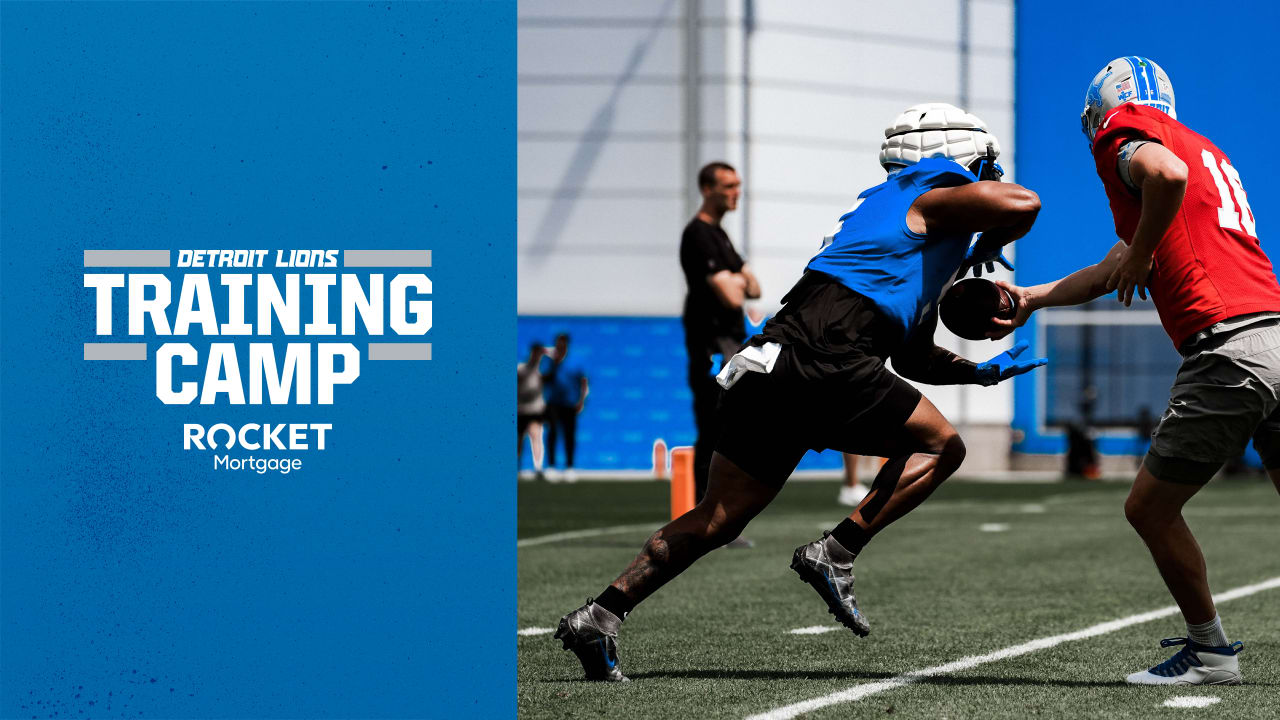Change up: The Lions participated in a night practice at the Meijer Performance Center on Monday, beginning at 6 p.m. This practice was physical and involved pads, including some live tackling sessions.
“The schedule changes a lot, especially from last year to this year, so we’re switching things up to help them adjust. It’s something new for them, starting the day a little later. As the sun sets, we’re practicing out there, which will enable us to get some solid work in,” stated head coach Dan Campbell prior to the practice.
Practice report: Several players had to leave practice due to injuries. Cornerback Terrion Arnold (upper body) got caught up with wide receiver Amon-Ra St. Brown during a one-on-one drill. Additionally, cornerback Ennis Rakestraw Jr. (ankle) and running back Jahmyr Gibbs (leg injury) exited the session and did not return.
Several other prominent players who missed practice on Monday included cornerback Carlton Davis III, guard Kevin Zeitler, defensive lineman Alim McNeill, tight end Sam LaPorta, and edge rusher James Houston.
“`html
Lions Adjust Training Schedule with Night Practice Amid Injury Setbacks
The Detroit Lions, a prominent team in the NFL, are making headlines with a strategic shift in their training schedule. Faced with injury setbacks that could jeopardize their season, the Lions have opted for night practices to accommodate their injured players while maintaining team cohesion and performance standards. This article delves into the rationale behind this decision, the benefits of night practices, and practical tips for sports teams facing similar challenges.
The Current Injury Landscape
Injuries are an unfortunate reality in professional sports, and the Lions are no exception. Key players have faced various injuries, leading to a reshuffling of training routines. Some notable injuries affecting the team include:
- Quarterback Injury: The starting quarterback is recovering from a shoulder injury, which has raised concerns about the team’s offensive strategy.
- Wide Receiver Setbacks: Several wide receivers are dealing with hamstring issues, impacting the team’s passing game.
- Defensive Line Concerns: Key defensive players are nursing injuries, affecting the overall defensive formation.
The Shift to Night Practices
To adapt to these injuries, the Lions have implemented night practices. This decision is driven by several factors:
1. Cooler Temperatures
Practicing at night allows players to train in cooler conditions, reducing the risk of heat-related injuries and fatigue. This is particularly beneficial during the sweltering summer months when daytime practices can be grueling.
2. Improved Focus
Night practices can lead to improved focus and intensity. With fewer distractions and a different atmosphere, players may be more engaged and motivated during training sessions.
3. Accommodating Injured Players
By adjusting the training schedule, injured players can participate more effectively in practices. This allows coaches to maintain a sense of unity within the team while enabling rehabilitation without the pressure of standard day training.
Benefits of Night Practices
Implementing night practices comes with a variety of advantages for the Lions and any sports team considering similar adjustments:
- Enhanced Recovery: Players might have more time to recover during the day, leading to less strain on their bodies.
- Team Bonding: The unique scheduling can foster camaraderie as players navigate a new training routine together.
- Strategic Adaptation: Coaches can use this opportunity to experiment with new strategies in a less conventional environment.
Practical Tips for Teams Facing Injury Setbacks
Here are some practical strategies that any sports team can implement if they encounter similar injury challenges:
1. Assess Training Routines
Evaluate the current training schedule and identify areas that can be adjusted to accommodate injuries. Flexibility is key.
2. Monitor Player Health
Keep a close eye on player health and recovery. Use technology and analytics to track their progress and adapt training accordingly.
3. Focus on Recovery Techniques
Incorporate recovery techniques such as massage therapy, ice baths, and hydration strategies into daily practice.
Case Studies: Other Teams Adjusting Training Schedules
Other professional sports teams have also adapted their training regimens in response to injuries:
| Team | Adjustment Made | Reason |
|---|---|---|
| Seattle Seahawks | Increased Recovery Days | To manage player fatigue and injuries |
| Golden State Warriors | Light Practices Before Games | To ensure players are fresh for matches |
| New England Patriots | Virtual Training Sessions | To keep players engaged while recovering |
First-Hand Experiences
Several players from the Lions have shared their insights regarding the shift to night practices. Here are a few testimonials:
“Practicing at night has been a game-changer for us. It feels different, and I think it helps us focus more.” — Player A, Wide Receiver
“With the cooler temperatures, I can run longer without feeling exhausted. It’s a smart move.” — Player B, Defensive End
Future Implications for the Lions
The adjustment to night practices could have long-term benefits for the Lions, especially as they navigate through injury challenges. Key implications include:
1. Building Resilience
Adapting to new training conditions can foster resilience among players, preparing them for unpredictable game scenarios.
2. Strengthening Team Dynamics
By training together under unique circumstances, players can strengthen their bonds, leading to improved teamwork on the field.
3. Enhanced Game Preparation
This approach may ultimately lead to better game preparation, as players adapt to varying conditions and expectations.
Conclusion
As the Lions continue navigating their injury woes, the shift to night practices exemplifies adaptability and strategic planning. Teams across all sports can learn from this approach, highlighting the importance of flexibility in training schedules, especially during challenging times.
“`


